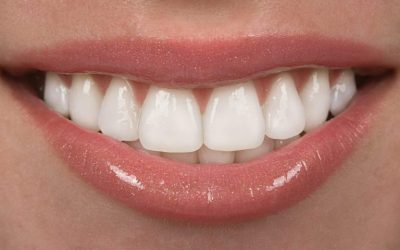What are dental veneers?
Dental veneers are ultra-thin, custom-made shells that are bonded to the front surface of your teeth, providing a natural-looking smile. They are typically made from porcelain or composite resin and can effectively address a variety of dental issues such as discoloration, chipped or misaligned teeth, and gaps between teeth. Veneers are a popular choice for those seeking a long-lasting solution to improve the appearance of their smile
One of the key benefits of dental veneers is their ability to mimic the natural look of teeth. The thin shells are carefully crafted to match the shape, size, and colour of your existing teeth, resulting in a seamless and natural smile. Whether you have stained or discoloured teeth due to aging, smoking, or consuming certain foods and beverages, veneers can give you a brighter and more youthfullooking smile

The benefits of dental veneers
Apart from their aesthetic appeal, dental veneers offer several other benefits. First and foremost, veneers are a conservative approach to enhancing your smile. Unlike other dental procedures, such as crowns or implants, veneers require minimal removal of tooth enamel. This means that more of your natural tooth structure can be preserved, resulting in a less invasive and more comfortable experience.
Furthermore, dental veneers are highly durable and can withstand normal biting and chewing forces. With proper care and maintenance, they can last for many years, providing you with a long-lasting solution for your smile. Additionally, veneers are resistant to stains, making them an ideal choice for individuals who enjoy coffee, tea, or other staining beverages.

Types of dental veneers
There are two main types of dental veneers: porcelain veneers and composite resin veneers. Porcelain veneers are the more popular choice due to their superior aesthetics and durability. They are custom-made in a dental laboratory and require multiple visits to the dentist for placement. Porcelain veneers are stain-resistant and can last for 10-15 years with proper care
Composite resin veneers, on the other hand, are applied directly to your teeth and can be completed in a single visit to the dentist. While they are less expensive than porcelain veneers, they are not as durable and may require more frequent maintenance or replacement. Your dentist will help you determine which type of veneer is best suited for your individual needs and budget.

The procedure of getting dental veneers
The process of getting dental veneers typically involves several steps. During your initial consultation, your dentist will evaluate your oral health and discuss your goals for achieving a beautiful smile. They will then take impressions of your teeth, which will be used to create custom veneers that perfectly fit your teeth
Before the veneers are bonded to your teeth, a small amount of enamel may need to be removed to ensure a proper fit. This is a painless process, and your dentist will administer local anaesthesia to ensure your comfort. Once the veneers are ready, your dentist will carefully bond them to your teeth using a dental adhesive and make any necessary adjustments for a perfect fit.
How long do dental veneers last?
With proper care and maintenance, dental veneers can last for many years. Porcelain veneers have a longer lifespan compared to composite resin veneers. On average, porcelain veneers can last for 10- 15 years, while composite resin veneers may need to be replaced every 5-7 years.
To extend the lifespan of your veneers, it is important to maintain good oral hygiene practices. This includes brushing your teeth twice a day with a non-abrasive toothpaste, flossing daily, and visiting your dentist regularly for check-ups and cleanings. Additionally, it is important to avoid habits such as biting your nails, chewing on hard objects, or using your teeth as tools, as these can potentially damage your veneers.

Maintaining dental veneers
Caring for your dental veneers is relatively simple and does not require any special techniques. It is important to continue practicing good oral hygiene by brushing and flossing regularly. Using a non- abrasive toothpaste and a soft-bristled toothbrush will help prevent any scratches or damage to the veneers.In addition to oral hygiene, it is crucial to avoid habits that can potentially damage your veneers. This includes biting your nails, chewing on hard objects, or using your teeth as tools.
These actions can cause chips or fractures in the veneers, compromising their appearance and longevity.
Regular dental check-ups are also essential to ensure the health and longevity of your veneers. Your dentist will examine your veneers during these visits and make any necessary adjustments or repairs. By following these simple maintenance tips and visiting your dentist regularly, you can enjoy a beautiful and long-lasting smile with your dental veneers.
Regular dental check-ups are also essential to ensure the health and longevity of your veneers. Your dentist will examine your veneers during these visits and make any necessary adjustments or repairs. By following these simple maintenance tips and visiting your dentist regularly, you can enjoy a beautiful and long-lasting smile with your dental veneers.

Common misconceptions about dental veneers
There are several misconceptions surrounding dental veneers that can sometimes deter individuals from considering this cosmetic dentistry option. One common misconception is that veneers are only for celebrities or those with significant dental issues. Veneers can benefit anyone who wishes to improve the appearance of their smile, regardless of their occupation or the severity of their dental concerns
Another misconception is that veneers require extensive and painful procedures. While some enamel removal is necessary to ensure a proper fit, it is typically a painless process. Additionally, advancements in dental technology have made the entire veneer placement procedure more comfortable and efficient, reducing any potential discomfort.

Dental veneers vs. other cosmetic dentistry options
When considering cosmetic dentistry options, it is important to understand the differences between dental veneers and other alternatives. Dental veneers offer a conservative approach compared to procedures such as crowns or implants, as they preserve more of your natural tooth structure. They are also more versatile than teeth whitening treatments, as they can address a variety of dental issues beyond just discoloration.
In terms of durability, dental veneers are a long-lasting solution compared to cosmetic bonding, which may require more frequent repairs or replacements. Veneers are also more resistant to staining compared to natural teeth or teeth treated with teeth whitening procedures.
Ultimately, the choice between dental veneers and other cosmetic dentistry options depends on your specific needs and goals. It is important to consult with your dentist to determine the most suitable treatment plan for achieving your desired smile
Conclusion
Dental veneers offer a comprehensive solution for enhancing the appearance of your smile. With their ability to mimic the natural look of teeth, durability, and conservative approach, veneers have become a popular choice for individuals seeking a long-lasting and aesthetically pleasing solution. Whether you have discoloured teeth, gaps, or chips, dental veneers can transform your smile and boost your confidence.
By understanding the benefits, types, and maintenance of dental veneers, as well as dispelling common misconceptions and comparing them to other cosmetic dentistry options, you can make an informed decision about whether veneers are the right choice for you. Consult with your dentist to explore the possibilities and take the first step towards achieving the smile of your dreams. Ready to transform your smile with dental veneers? Contact our dental practice today for a consultation and let us help you achieve the smile you’ve always wanted.